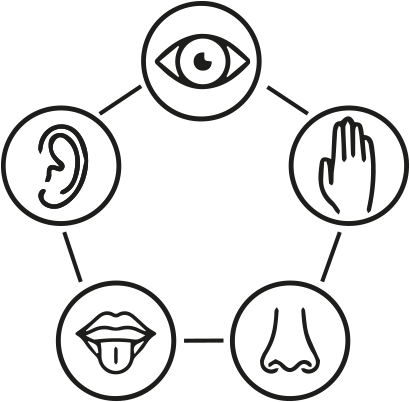Let’s talk some sense into you…
| Let’s talk some sense into you…
By Emilie Sitzia Maastricht University |
| Intended learning outcomes (more on programme level)
Intended as introduction to students who might not engage with this type of learning on a regular basis. |
| Learning objectives (course specific)
This workshop aims to help the students engage critically with how to train their senses to experience/ perceive more fully and collect information relevant to their projects. It will train them to describe and communicate sensory information clearly and precisely and understand how to analyse it using various (inter)disciplinary protocols. After this workshop the students will understand the importance of sensory data in research and are able to collect and use it to think about their own topic and feed their research process. |
| Objective statement (course description)
What do all researchers have in common? They are expert observers. Their work involves attuning and developing their skills of observation, sharpening their senses. Observation is a skill that is central to any successful fieldwork and yet it often gets taken for granted and not given specific attention. This workshop (2 sessions) builds on the observation (ethnographic) method the students have been introduced to and attends to train (all) their senses to help them become better observers. |
| Type of course
Training course |
| Target group
University students |
| Teaching method
Workshop |
| Activities
Tutorial 3a 1- Ice breaker – What does your project smell like? 2- Sensory training (sensory deprivations exercises) Activity: decide which sense you want to attune. In order to do so, you will deprive yourself of the other senses (wearing ear plugs, an eye mast, and/or mouth cap). During the experiment, ask yourself:
Once finished with the experiment, remove the restraints: what do you notice? 3- Data gathering / Communication exercises (introduction to methodologies: sensory mapping, poems, drawings, recordings + cookie exercise/garden mapping)
Tutorial 3b 4- Role play exercise: analysing sensory data using various protocols 5- How to use your senses in your specific project: brainstorm & planning |
| Assessment of learning |
| Additional biblio sources
Longhurst, R., Ho, E. & Johnston, L. (2008). Using ‘the body’ as an ‘instrument of research’: kimch’i and pavlova. Area, 40(2), 208-217 |
